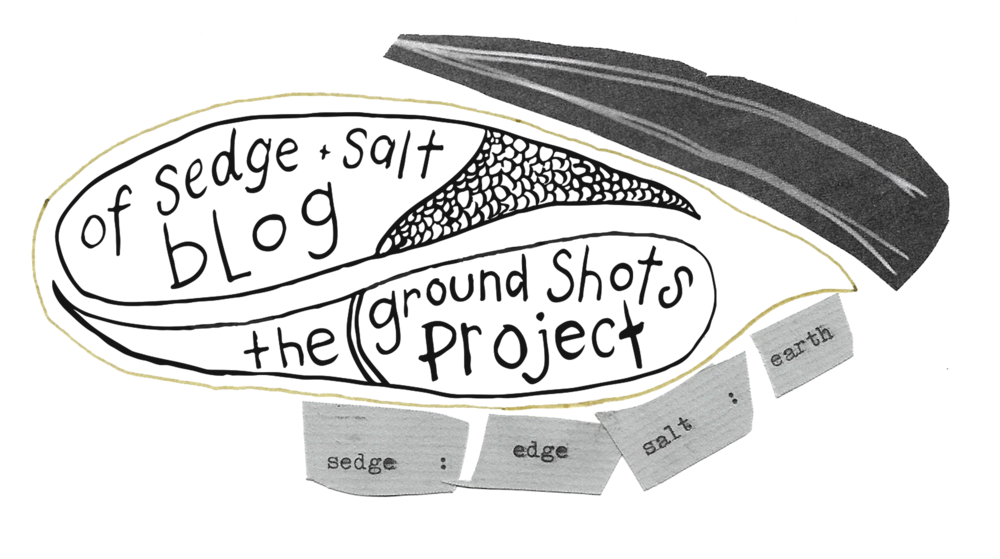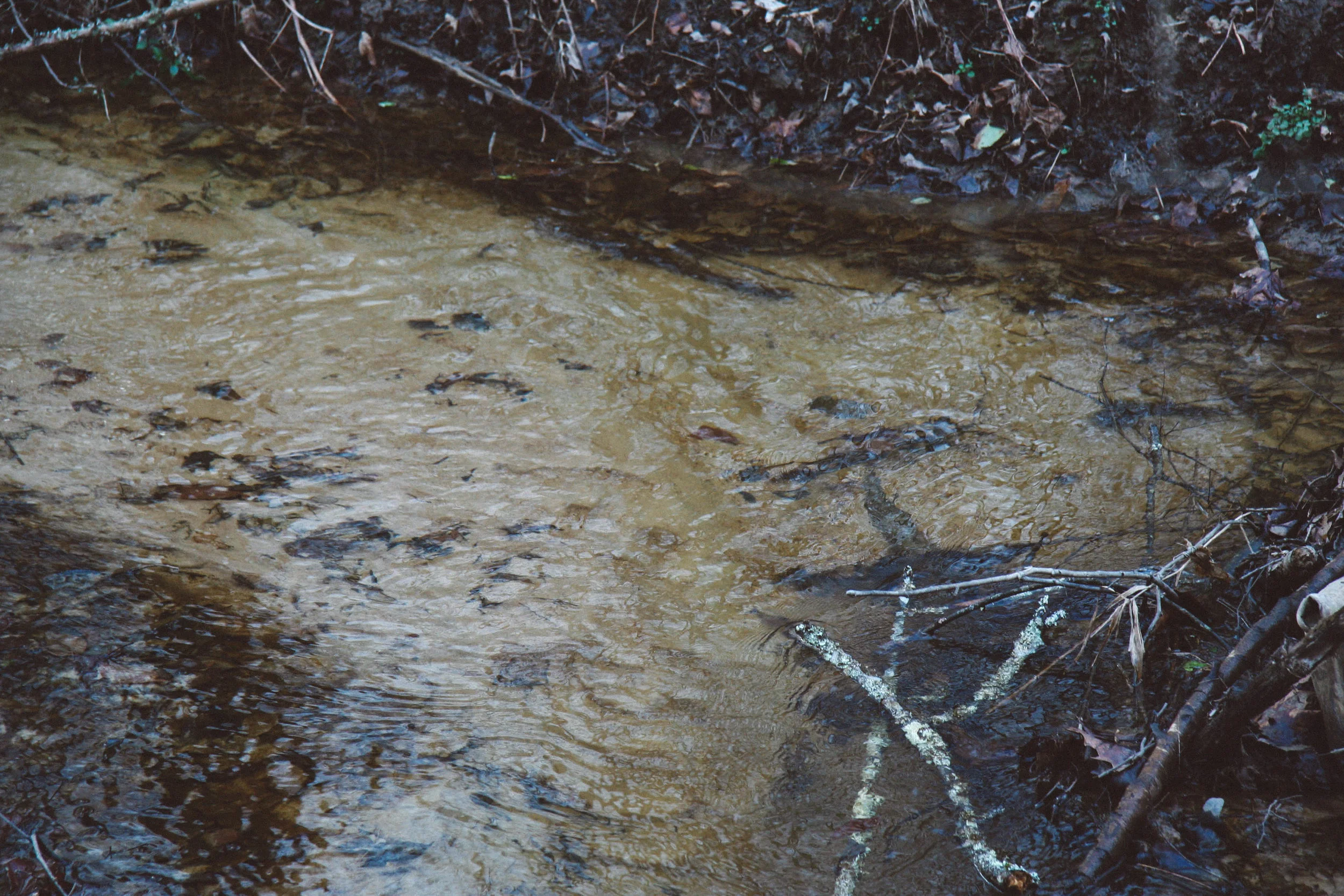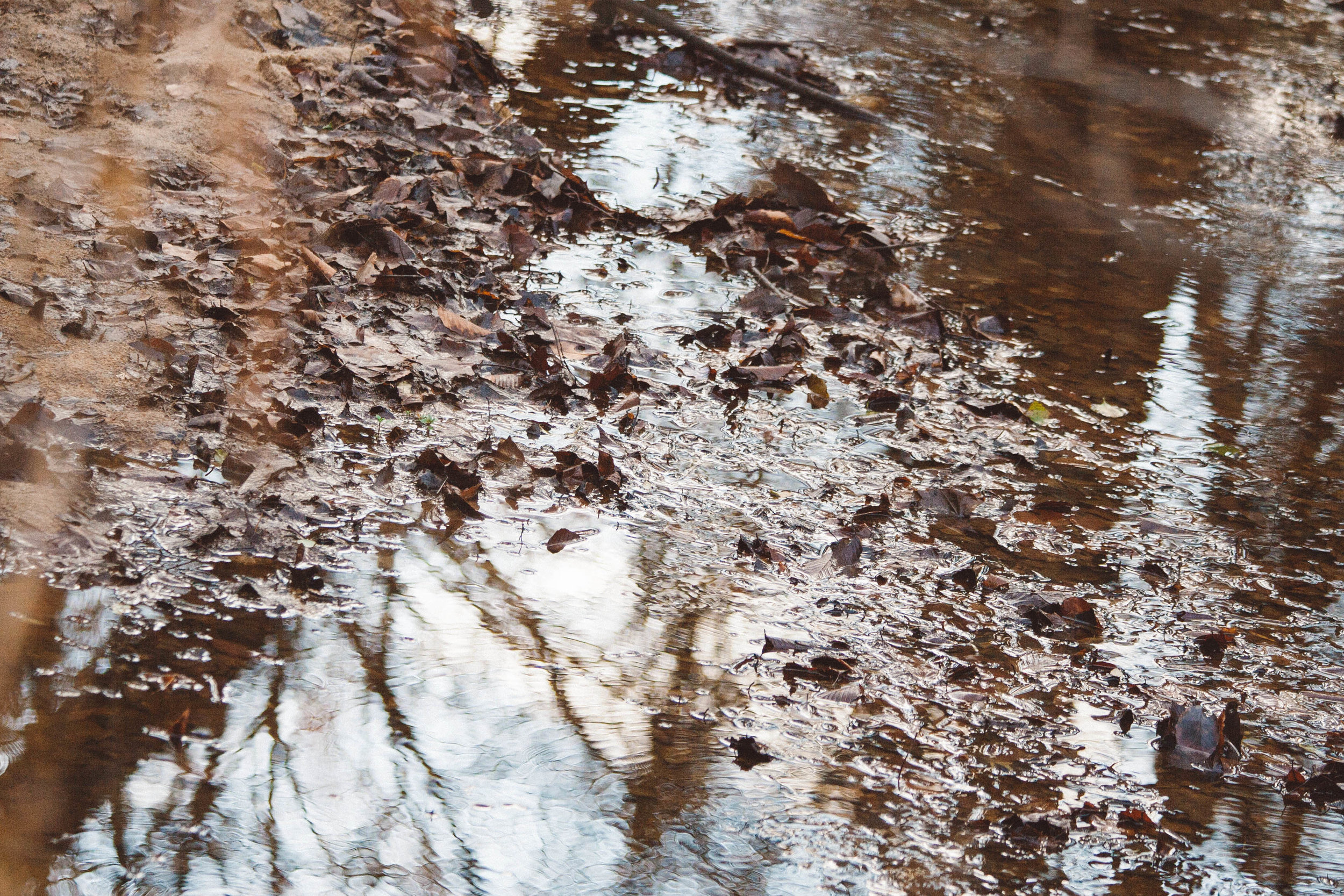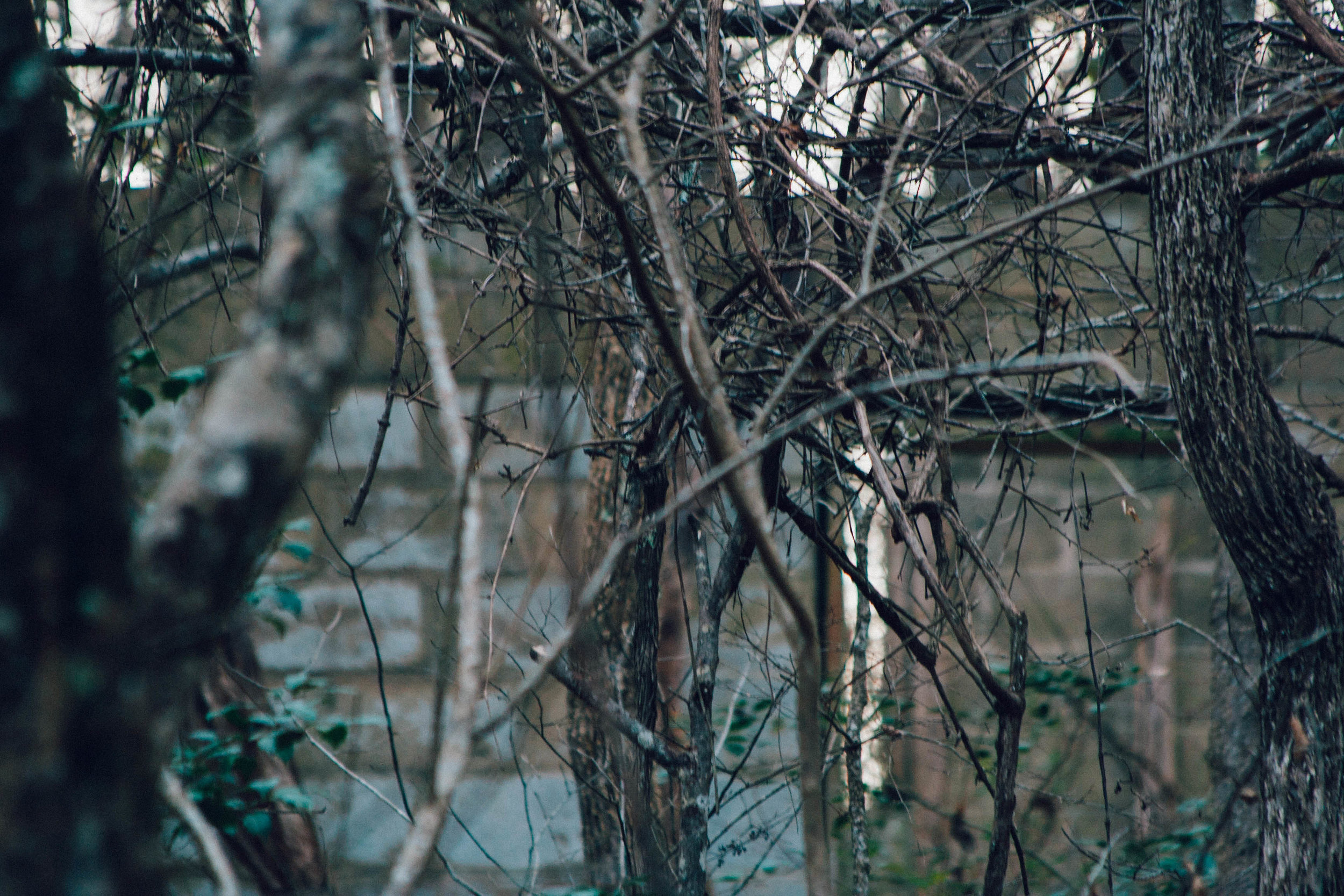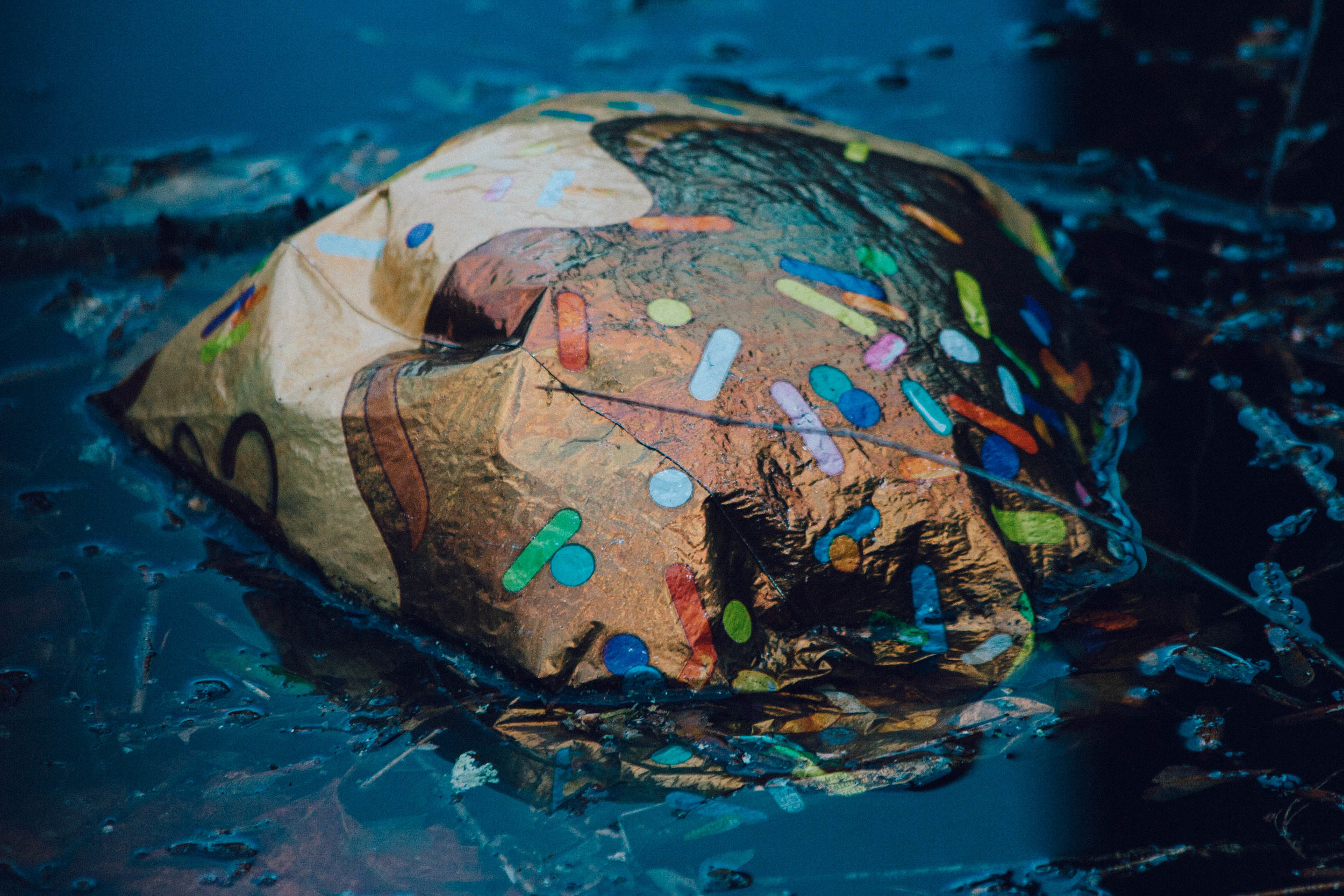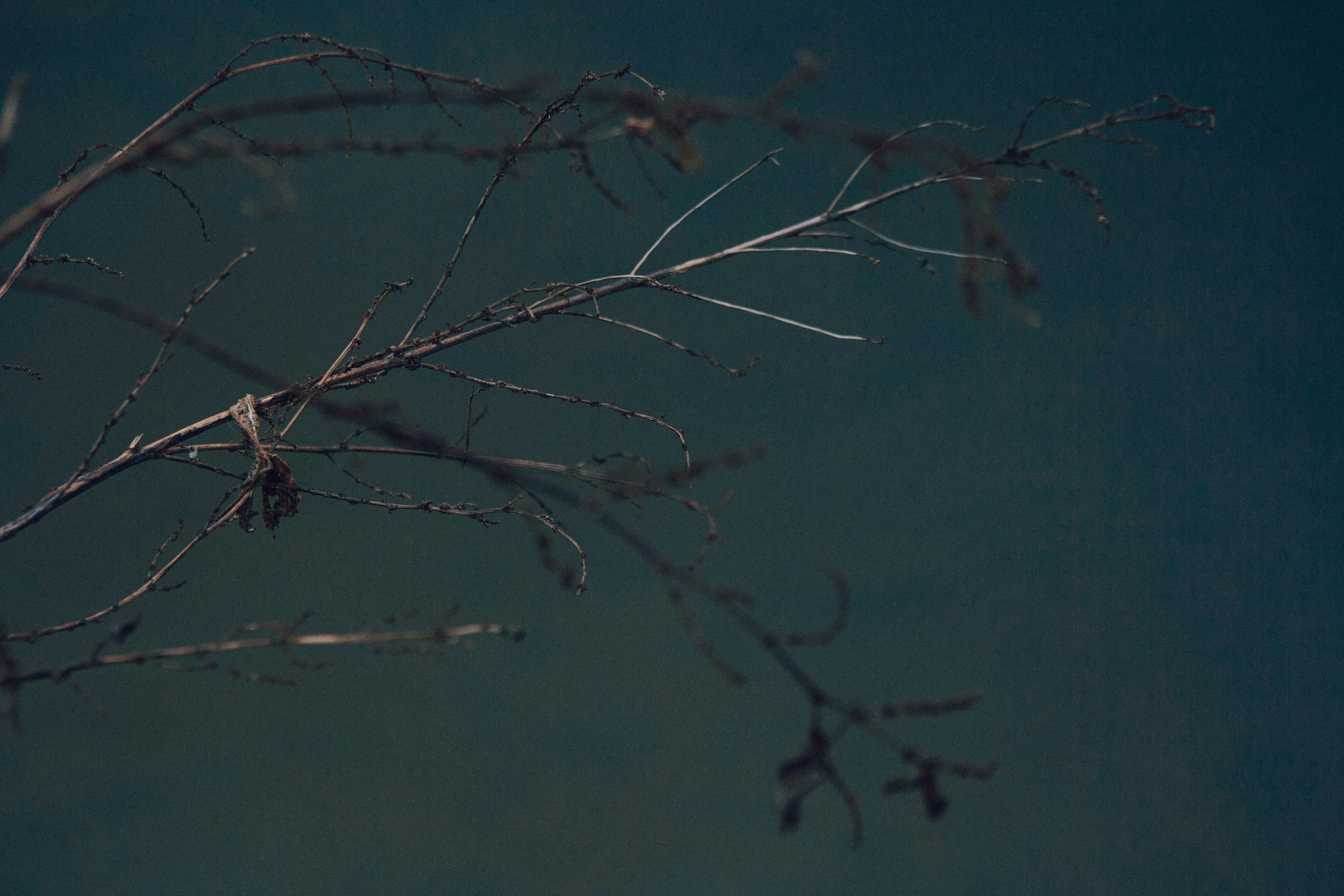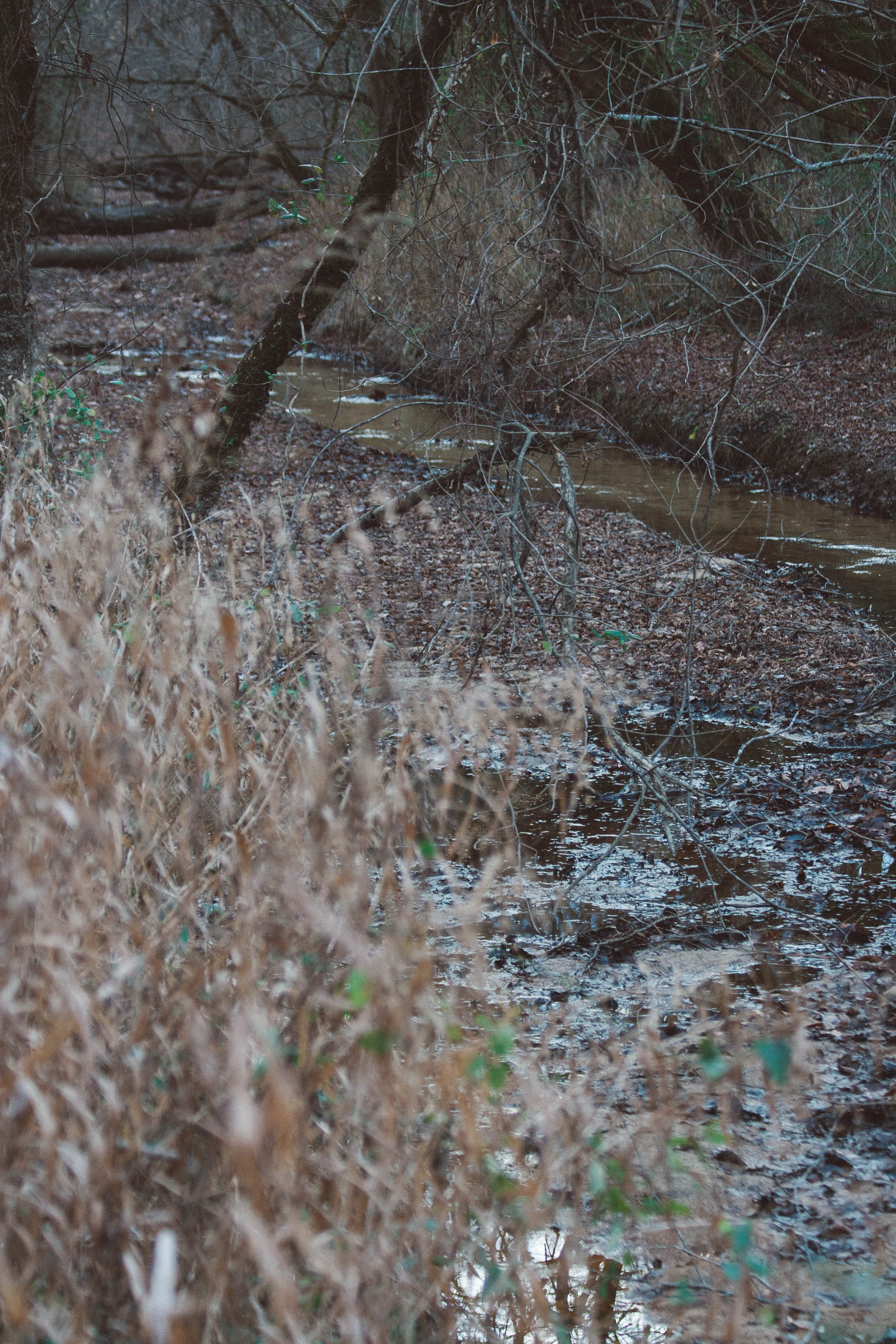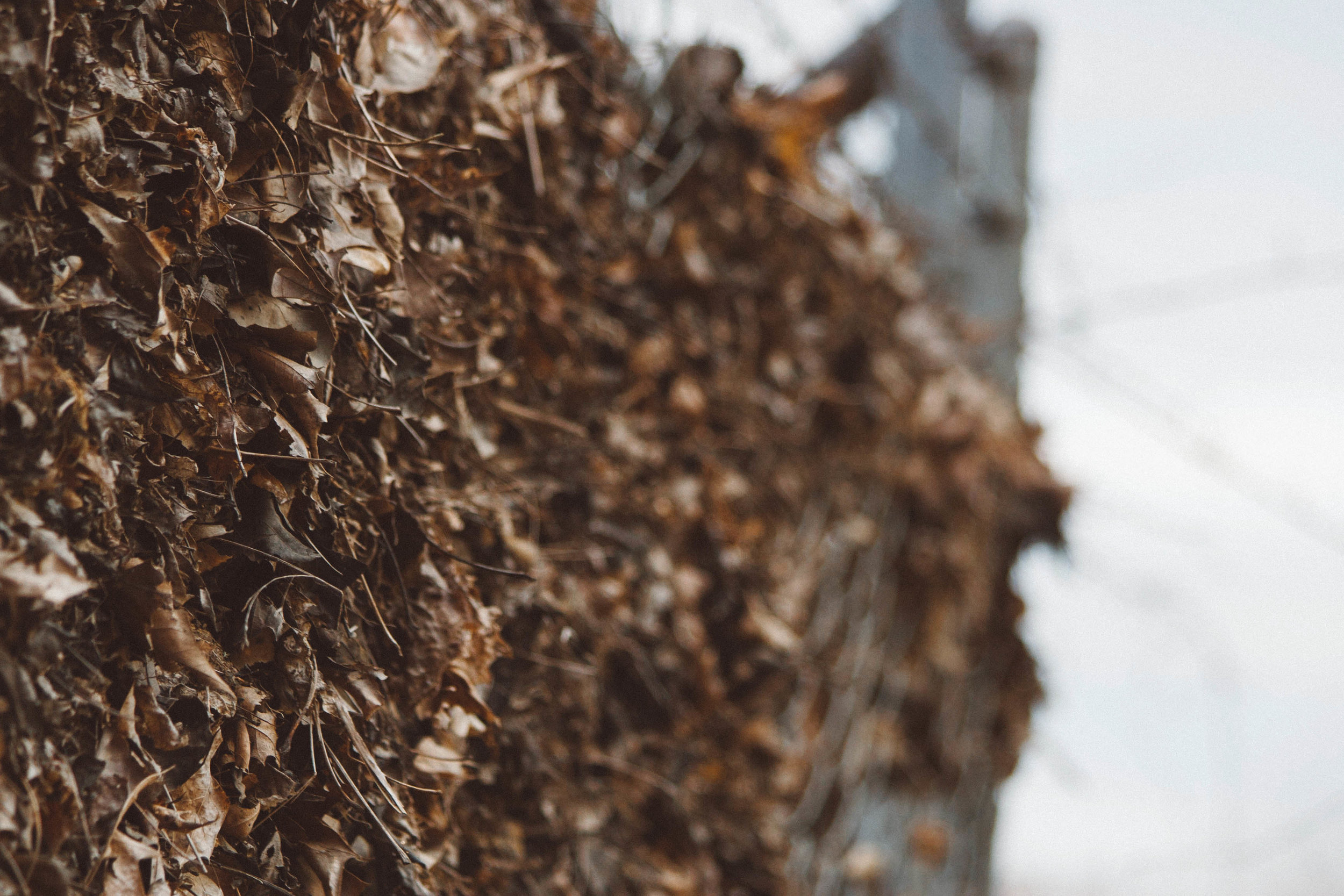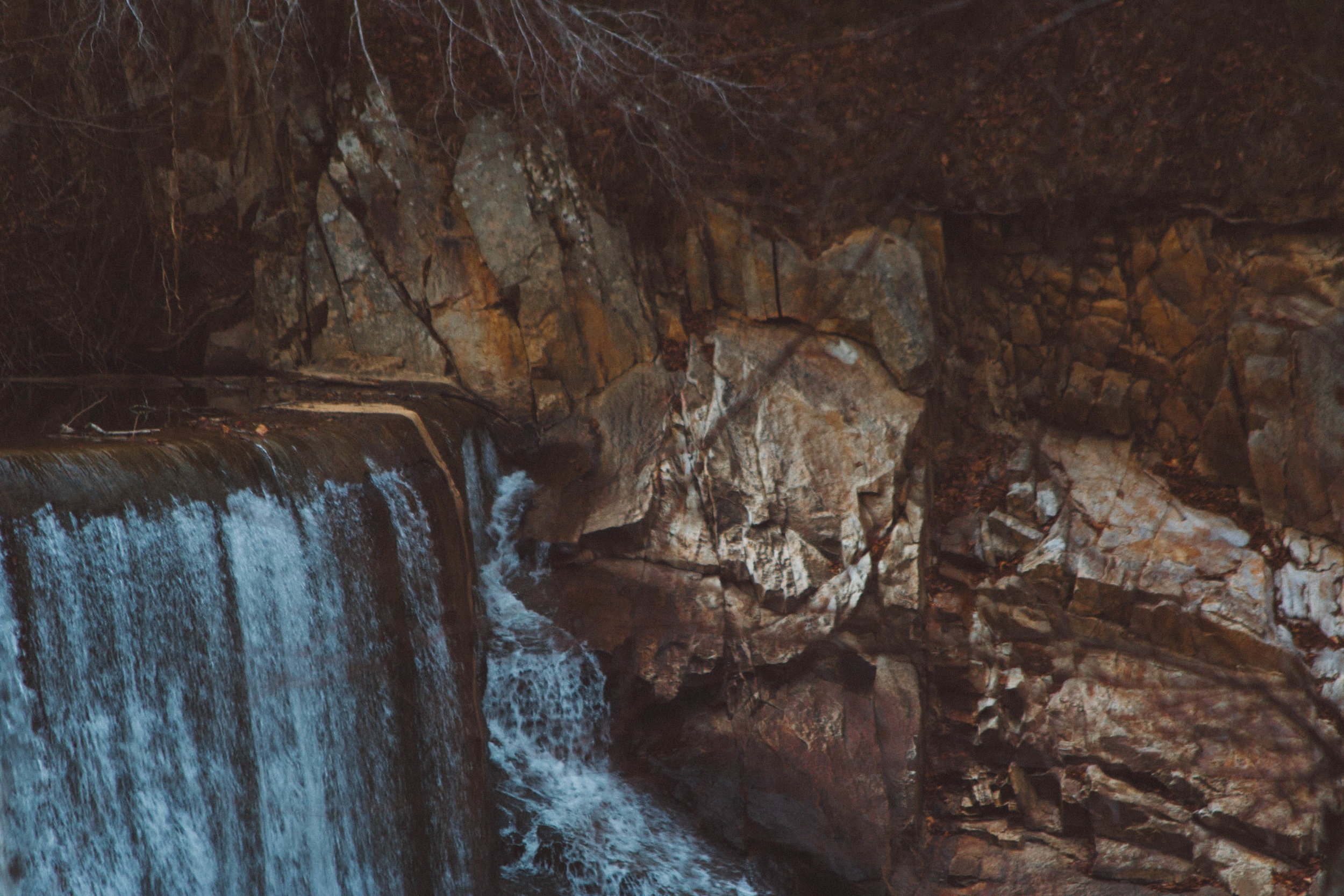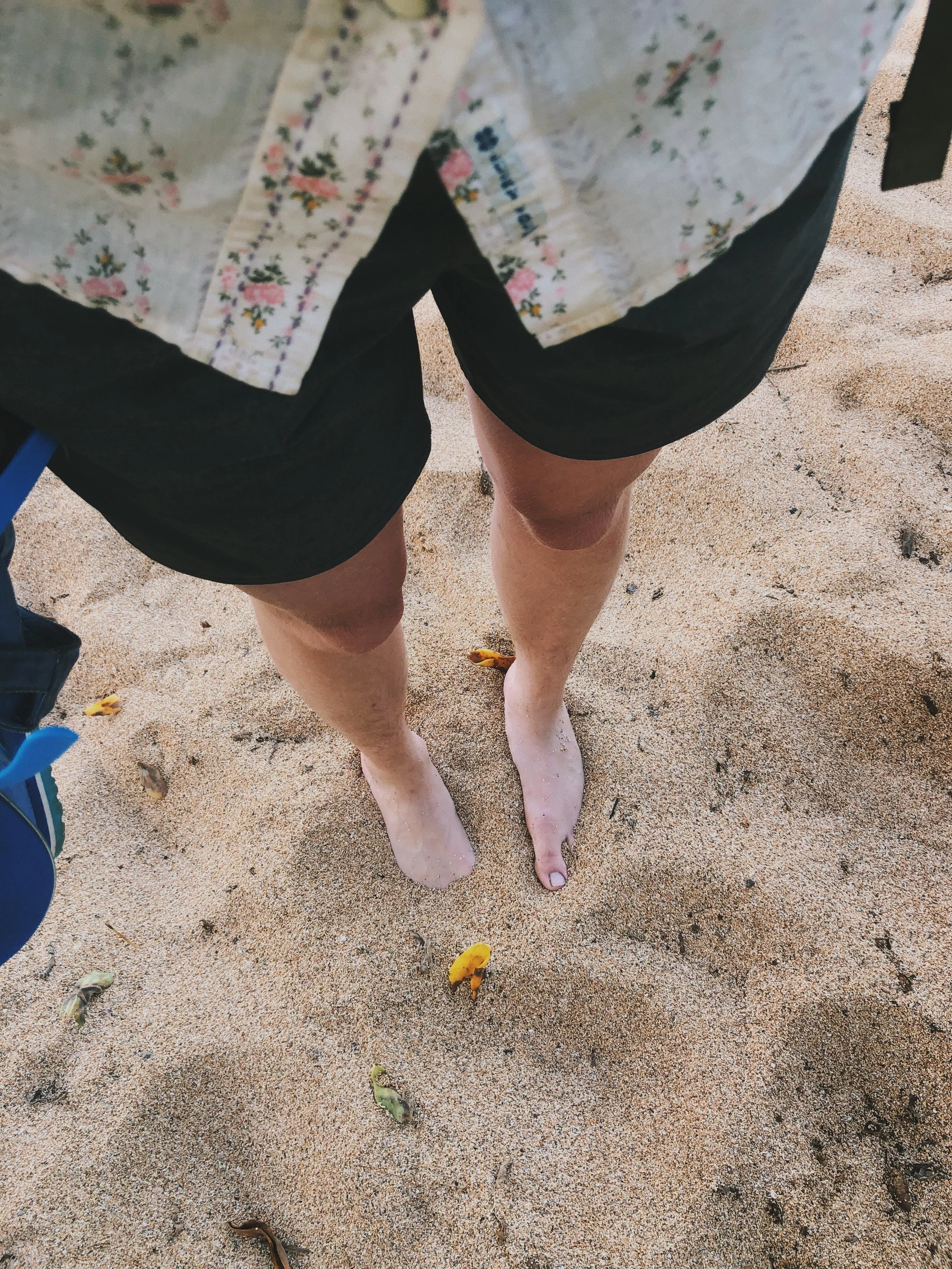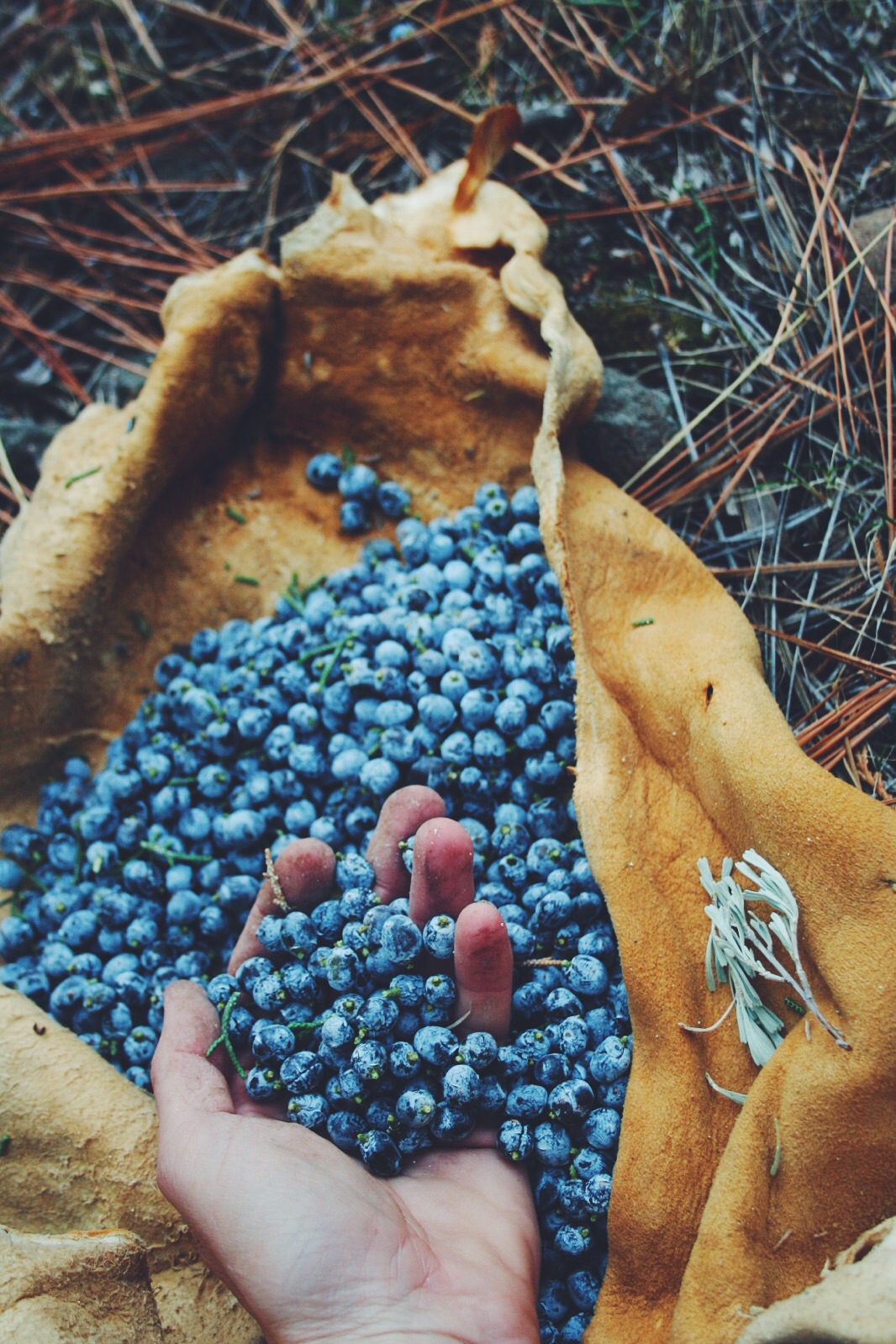“It seems reasonable to believe — and I do believe — that the more clearly we can focus our attention on the wonders and realities of the universe about us the less taste we shall have for the destruction of our race. Wonder and humility are wholesome emotions, and they do not exist side by side with a lust for destruction.”
Whittle's Mill along the Meherrin River, south central Virginia.
Why care about land? wild spaces? a tree, river or overgrown corner lot?
Often under scrutiny is the idea that we should have public, free and wild land that is accessible to everyone. Wild land that is preserved for its own sake, too. Huge tracks have been set aside for preservation or limited use. We have kept it this way because not every space is meant for us to inhabit. It is ironic and strange that we even have to fence in wilderness in order for this commons to not be used or abused. And, that our way of life as human beings in the modern era is lived in such a way that we have to protect the land from ourselves, so we don't do too much damage.
This is something I've been thinking about a lot more lately because of the risk our public lands are under. Actually, it has come up from time to time in my mind for a little over 10 years since receiving some life changing wisdom from a favorite professor "Hippie Kippie" as his Appalachian Trail name describes. He taught environmental philosophy amongst other topics and had us reading authors like Gary Snyder and Paul Shepard. He often offered coursework centered around human relationships to nature: How do we love or hate or show complete disregard to it? Do we worship it or see it as a means to an end? And what do we really define as 'nature' as anyway?
This question of 'why care?' has guided me through my twenties. It has led me to explore a diversity of communities and ecologies. I have always felt a connection to plants and this vague idea we call 'nature,' so for me, it has always seemed like a no-brainer. Why wouldn't you care about the land? Whether it's land you live on or land others live on or land no human lives on at all? Why wouldn't someone care about other living things besides themselves? Why wouldn't someone care about the rocks and the dirt and the water? I mean, isn't it what we're essentially made of? As we take in the training of our modern social structures, we grow out of our childlike eyes. Why should we try to see and care anyway?
I think about this because I care, and I want to understand why others would not prioritize it or even understand why they should care. I realize that I have a different perspective because I have chosen to spend extensive amounts of time in wilderness areas. It has profoundly affected me in a way that has indebted me to a lifelong sense of duty to protecting those places.
I didn't grow up realizing I had that access, and had to seek and find it myself. I grew up in a rural area, not a city, and surrounded by more tobacco fields, cows and oak trees than humans. Yet, this didn't mean I really had access to space all the time that allowed me to freely explore and feel embraced by wild space. I was surrounded by land, but so much of it had been so altered by humans. I did get to be outside, which is more than if I had lived in a city, or even suburbia, and I am grateful for that. But, there wasn't much free, open and public space to be enjoyed by all.
Human made trees meet river birch and elm.
I try to think from the perspective of someone who has never experienced the effects of being immersed in immense wild space. Or even had access to urban parks full of trees and ornamentals. Someone who hasn't experienced the gifts of what being in that space can actually bring, would naturally be more inclined to fear it. Without access, it can't be easily appreciated or understood. The attention to natural details and the curiosity that comes with knowing that space is missing. Someone who grew up without access might see the wilds as untapped wealth, as wasted space, or as a fearful place of void. An uncomfortable zone to be eaten by bugs and a hiding place for all the dangerous animals.
Having traveled all over, I realize that in some places people have a lot more access than others. It becomes a part of the culture to enjoy this wild commons and feel the benefits of it. It is a place of sanity and neutrality. It is a place to find your real thoughts, to quiet the mind, to put life in perspective. If you've never had access to it, which is something of immense privilege these days, then what would prompt someone to feel strongly about protecting the land? Why prioritize the connection with, preservation of and advocation for wilderness areas, or even green spaces in cities? We also take for granted in the United States that we even have an acre of wild or preserved space. Some parts of the world are so decimated or altered by human activity, that this is a distant fantasy.
We are wildness too. We are not apart from what we call 'nature.' Nature is not a thing 'out there.' It is right here, it is everywhere, it is the root of our origins, it is the thread that connects us to everything. To separate from it and then to deny our connection to it, is maybe the source of our idea that we don't need it to live well. We then deny ourselves what we really are. We are all ultimately different reflections of this beautiful wildness.
To appreciate the land is to see oneself in the sunset, in the highest peak, in the rushing waterfall. The water always moving, just like we live and die. It is a comfort to know our connection. The mountains rise and fall from the tectonic plates that slying push up or apart, just like we grow, blossom, and then shrink with age. It is to see each day start and then finish in each individual breath. It is to see our individual selves in the dandelion that grows haphazardly in the sidewalk. What makes us so different and separate? If we are not wildness, then what are we? If we are not also the mountains and the ocean and the wind, then what are we? What purpose do we have if we are separate from the world that cradles us?
The Land cradles our wildness. To learn the ways of the wild, is to just learn what it is to be innately human. We can tune in, tap in and narrow down on that magical thread that keeps it all going. Tuning in doesn't mean one has to go seek the deepest wilderness. Caring about the land can be so small and still be meaningful. Tuning in can be simply taking a deep breath of fresh air in a passing wind, watching the rattling leaves during fall, or admiring the Tree-of Heaven's tenacity growing in the deepest of city lots. It could be keeping small plants by an urban front stoop, or turning a suburban front yard into a garden of native wildflowers and organic vegetables. Or, it could be taking the privilege of having a big farm or piece of land and caring for its well being as much as possible. That could mean growing native pollinators in-between the row crops so that with taking, we are giving. Or, it could be donating some private land for public use, or putting land into conservation to protect it for its own sake. It could be making medicine from the weeds. Or eating wild greens. We have to make do with what we have right now in order to really make incremental change.
We have a duty to protect the wild, and the sanity and sanctity that the wild brings. It reminds us of who we really are, of what really matters in the end. It also reminds us of how small and big we are. It shows us how our actions are the cause of so many big cascades. We have a duty to honor this cycle and our part of it. We must protect and respect that which gives us life. Some call it the Mother. Others, God. Others, Gaia. Whatever you want to call it, the source has many masks and colors and manifestations. The dandelion is just a different expression of the mask we all wear.
Caring for the land also changes our relationship with death. Our fear of death is deeply intertwined with denial of interconnectedness. When I stand on top of a mountain or deep in a giant desert canyon, I feel so small. When I study the details of different plants, I feel so big. Being reminded of our size gives us a sense that we are a part of all things, not necessarily separate. To deny that we die and perish and feed the soil for the next generation of life is to deny the most basic rule of our existence. We live, then we die. We grow and thrive, then we wither, become fuel and fertilizer. It is such a gift to be able to grow and then to help others grow. When the realization strikes of our own definite mortality; instead of doom and dread, we could feel contentedness, gratefulness, and honor. It is the one thing certain in life. How we choose to spend the time that we are alive is what matters.
Our ancestors are found in the land. When we notice, we see our loved ones embodied in all things. We notice our never-ending connection to them, and with that, feel comfort. We can do our silent prayers there. We can speak to ourselves clearly, talk to those we miss, find comfort in the wisdom of the plants, birds. If we lose places to be able to reconnect like this, we lose something innate in our being.
Caring for land is caring for ourselves and each other, too. Without healthy land, we cannot live healthy lives. When the air is polluted, we get respiratory diseases and infections. If our water is polluted, we may ingest heavy metals that affect our brain functioning and the brains of our children and children's children. If we have unhealthy soil, we cannot get food with enough nutrient density to gives our body what it needs to function normally. This seems simple enough. If it isn't good for us, it isn't good for the fish and the trees either. We are trained to ignore some of these things, even though we know this very well and charge forward. It has become normal to have disease and illness from unclean food and water. Keep looking forward. We are taught to think so much as individuals that we do not consider our children or neighbor's children, much less the health of the land. Must charge forward. We have to see the forest as a whole, not just each tree as an individual.
To consider others, is to consider ourselves, consider our ancestors, and consider the land for its own sake.
I seek the knowledge of plants, mushrooms, birds, geology and wild space, to try to heal. I feel I am married to these plants. I feel a duty to acknowledging them and listening. I need these times of connection to remind me of what matters the most. The truth of our interconnectedness. If we dump, pollute, and alter it all, what is left to remind us of the natural cycles of things?
Caring is more important that not caring at all. We owe it to ourselves, to the source, to wildness for its own sake. It gives us ultimate purpose. It gives us a sense of place and meaning. We should care about the land because it is an extension of ourselves, from the past and into the future. It it always there for us, we just have to open up.
All photos are taken by me. This photo series features a 'wild' space in my home county in southern Virginia called Whittle's Mill along the Meherrin River. It is enjoyed by all throughout the seasons as a place to swim, fish, canoe, or have a cookout with friends. Photos taken December 2016.
Plant List of common names for the Meherrin River compiled at this location over the years of visiting in different seasons, not complete by any means:
Paw Paw, Muscadine Grape, River Birch (big ones), Box Elder, Sycamore, American Elm (big ones), Spicebush, Hickory x2 species, Greenbrier, Ash, Ironwood/Hop Hornbeam, Sweet Cicely, Mayapple, Lady's Thumbprint, Elderberry, Solomon's Seal, Poison Ivy, Virginia Creeper, Tulip Poplar, Sweet Gum, Bidens, Redbud, Yellow Dock, Black Walnut, Red Maple, Honeysuckle, Ground Ivy, Wisteria, Jack in the Pulpit, Beech.
